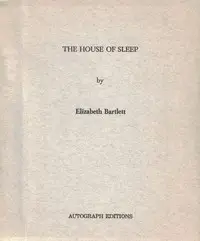"He Giveth His Beloved Sleep" by Elizabeth Barrett Browning is a poem that explores the themes of love, peace, and the comfort found in the gifts of God. The poem focuses on sleep as a great blessing. Browning thinks about sleep as a gift from God contrasting, and how it gives rest from the loud and sad parts of life. In the poem, she wants a peaceful ending expressing to loved ones that they should know that God gives eternal rest to those He loves. The descriptive language used creates feelings of calmness, showing sleep as a needed and loved part of life.

'He Giveth His Beloved Sleep'
By Elizabeth Barrett Browning
Find solace and tranquility as divine rest provides an escape from earthly chaos and sorrow.
Summary
About the AuthorElizabeth Barrett Browning was an English poet of the Victorian era, popular in Britain and the United States during her lifetime and frequently anthologised after her death. Her work received renewed attention following the feminist scholarship of the 1970s and 1980s, and greater recognition of women writers in English. Born in County Durham, the eldest of 12 children, Elizabeth Barrett wrote poetry from the age of eleven. Her mother's collection of her poems forms one of the largest extant collections of juvenilia by any English writer. At 15, she became ill, suffering intense head and spinal pain for the rest of her life. Later in life, she also developed lung problems, possibly tuberculosis. She took laudanum for the pain from an early age, which is likely to have contributed to her frail health.
Elizabeth Barrett Browning was an English poet of the Victorian era, popular in Britain and the United States during her lifetime and frequently anthologised after her death. Her work received renewed attention following the feminist scholarship of the 1970s and 1980s, and greater recognition of women writers in English. Born in County Durham, the eldest of 12 children, Elizabeth Barrett wrote poetry from the age of eleven. Her mother's collection of her poems forms one of the largest extant collections of juvenilia by any English writer. At 15, she became ill, suffering intense head and spinal pain for the rest of her life. Later in life, she also developed lung problems, possibly tuberculosis. She took laudanum for the pain from an early age, which is likely to have contributed to her frail health.

















